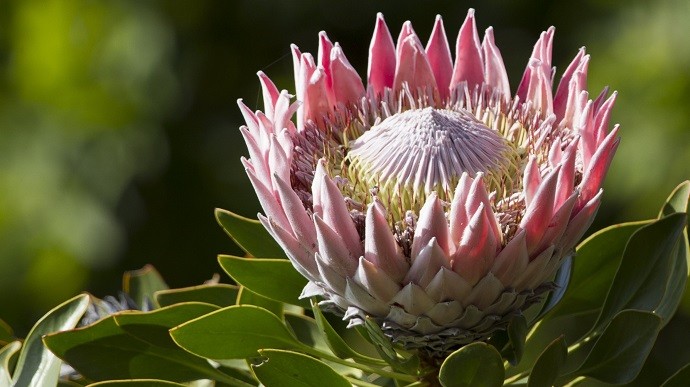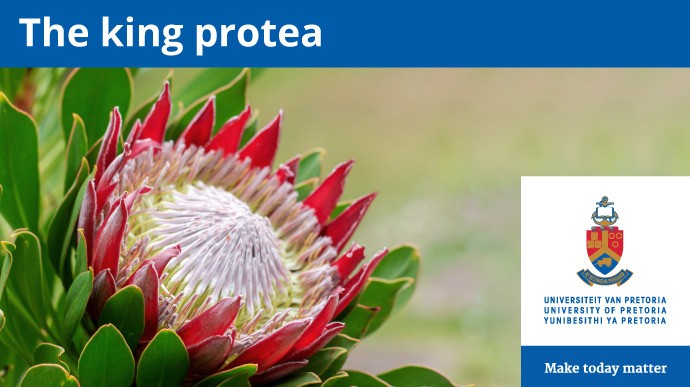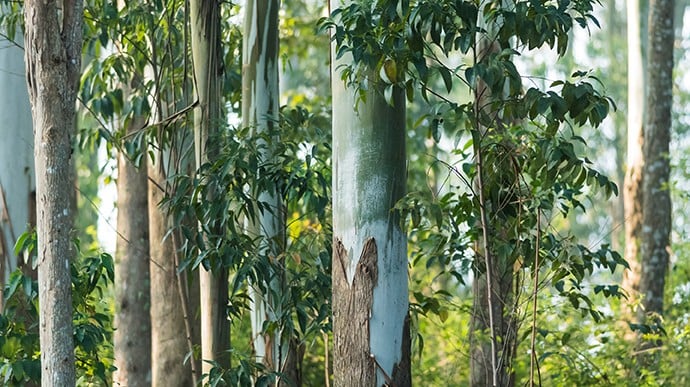
Professor Eshchar Mizrachi completed his undergraduate studies as well as his honours, master’s and PhD degrees at the University of Pretoria (UP). He has been employed at the University since 2006, was appointed as a senior lecturer in 2013 and as associate professor in 2019.
Prof Mizrachi says that UP is home to several world-class institutes and facilities that support his area of interest: genomics, bioinformatics and biotechnology. One of his main personal drivers in his career is empowering early-career researchers in Africa and around the world, and doing research that has an impact on society. UP, he adds, creates spaces and initiatives that foster transdisciplinary research in Africa.
Recently, his laboratory has led a multi-lab collaboration to sequence the genome of the king protea (Protea cynaroides), South Africa’s national flower and an iconic representative of the country’s biodiversity and the Cape Floral Kingdom. The genome opens up research opportunities to better understand the ecology, evolution and conservation of protea species and their relatives, and enables new horticulture research.
“My research focuses on sequencing the genomes of indigenous South African and African plant species and modelling complex biological processes, such as carbon allocation and partitioning in plant biomass formation and specialised roots for the acquisition of phosphorus and nitrogen in nutrient-poor soils,” Prof Mizrachi explains. He adds that this methodology can be applied broadly to answer questions about how novel pathways in plants are regulated by gene networks for the production of important chemical compounds.
“In the past decade or so, a convergence of technologies, computational capacity and a global drive for a more sustainable bioeconomy has highlighted the need to study and understand fundamental plant biology and evolution,” he says. Prof Mizrachi believes that his field of research contributes to the betterment of the world because the sequencing of plant genomes and the characterisation of the function of genes and gene networks that control plant traits such as growth, development and nutrient acquisition are critical for conservation efforts, biotechnology in agriculture and forestry, and for synthetic biology applications for novel products such as pharmaceuticals and nutraceuticals.
“I believe we have a moral responsibility in South Africa to study our indigenous plant biodiversity and connect our citizens to it,” he says. With 20 000 to 25 000 plant species, many of which originate in and/or occur exclusively in the country, South Africa is in the top five countries in the world for plant biodiversity. Despite this, the legacy of systemic inequalities is preventing knowledge about our rich biodiversity from reaching most of South Africa’s citizens, especially at a young age. We are engaging with stakeholders in the creative industries to find new ways to foster these connections.”
He has the following message for school learners or undergraduates: “Despite my lifelong love of nature and having researched plants for more than 15 years, it is important to note that I did not study biology in high school, and only really began studying plant biology after my master’s degree. Don’t ever think it’s too late to pursue something you are interested in or curious about.”
Prof Mizrachi hopes that his research contributes to answering fundamental questions about plant development and evolution, and leads to a broader interest from the public to engage with and value the natural world, particularly the amazing plant biodiversity that is around us.
 Story
Story
University of Pretoria (UP) researchers are at the forefront of a very special first for South African plant sciences. They have unravelled the precise genetic make-up of the country’s national flower, the king protea (Protea cynaroides). It is the first plant that’s unique to South Africa – and the species-rich fynbos biome in particular – to have its entire genome sequenced in-depth.
 Infographic
Infographic
University of Pretoria researchers find that the common ancestor of the approximately 100 species of Protea found in South Africa and Australia’s related macadamia nut trees (such as Macadamia integrifolia) and waratah (Telopea speciosissima) dates back to when dinosaurs went extinct.
 Story
Story
A biological phenomenon known as “polyploidy” may hold the key to how species adapt to climate change and how we can improve farm yields and cancer drugs.
 Infographic
Infographic
A biological phenomenon known as “polyploidy” may hold the key to how species adapt to climate change and how we can improve farm yields and cancer drugs.
 Story
Story
For millennia wood has played an integral role in the development of human civilisation, providing a source of energy and raw materials for building, furniture, industry and art.
 Story
Story
Researchers and postgraduate students from the Forestry and Agricultural Biotechnology Institute (FABI) and the Genomics Research Institute (GRI) at the University of Pretoria contributed to eight articles in a special issue of the journal, New Phytologist.
Copyright © University of Pretoria 2025. All rights reserved.
Get Social With Us
Download the UP Mobile App